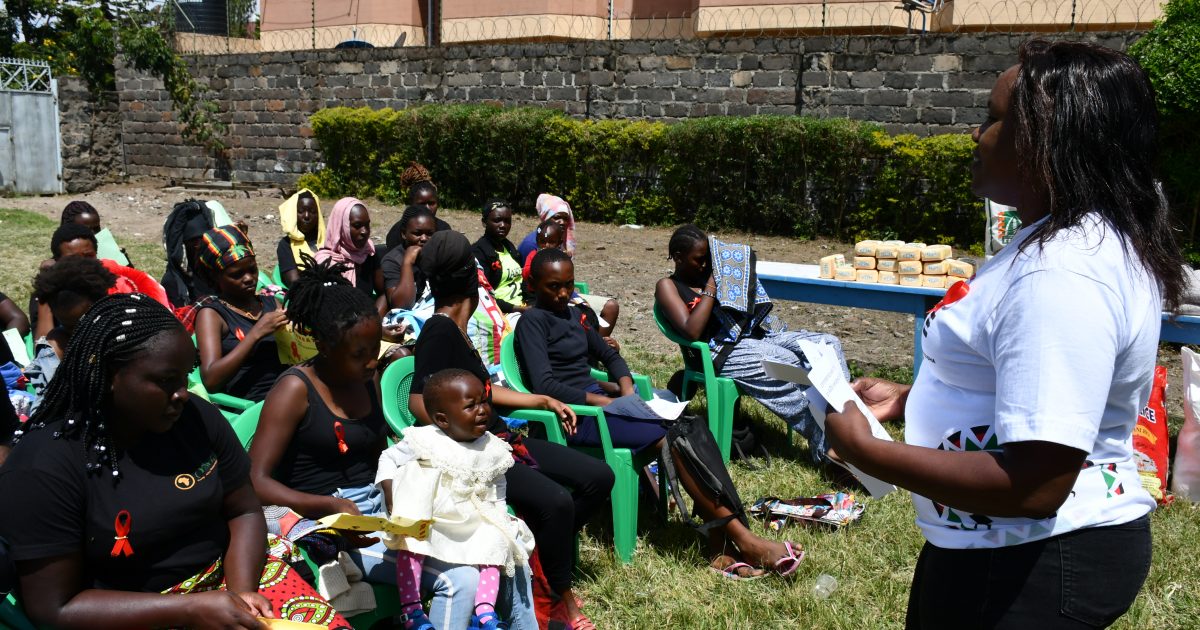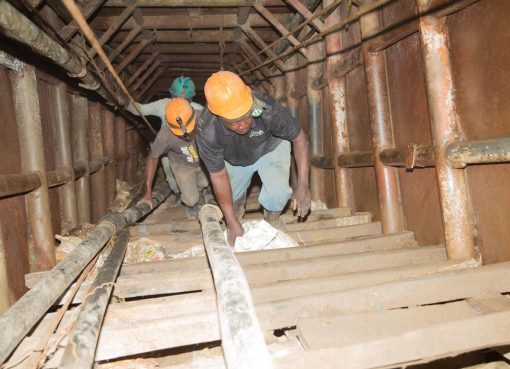At least 150 girls and teenage mothers from Nakuru City’s low-income dwellings have been furnished with tips on sexual and reproductive health in a bid to curb new HIV/Aids infections and teenage pregnancies.
The girls aged between 11 and 19 years drawn from Kaptembwa, Ponda Mali, Mwariki and Kwa Rhonda in Nakuru West Sub-County and Free Area, Kwa Morogi, Kanyon, Kiratina and Munyeki in Nakuru-East are beneficiaries of a mentorship program sponsored by Young African Women Initiative (Yawi).
The girls received inspirational talks from professionals in the medical sector and other fields on the importance of education. The program themed ‘Rock the Ribbon Together’ is promoting awareness on averting teenage pregnancies, HIV/Sexually Transmitted Infections and Gender Based Violence.
It further emerged that many young people in need of reproductive health services may either shy away from seeking, or be denied access to them, for a variety of reasons.
17-year-old Beatrice Wamboi from Kwa Morogi said most health providers were biased and did not feel comfortable serving sexually active youth.
The youth, on the other hand, she said they were uncomfortable because the way the services are set up does not meet their needs.
Another major barrier to access of reproductive health services for the youth according to Wamboi is that many communities feel that unmarried youth should not be sexually active and, therefore, should not have access to reproductive health services.
“I am speaking on behalf of thousands of Kenyan youth yearning for friendly services that attract young people, meet their needs comfortably and responsively, and succeed in retaining young clients for continuing care. Youth-friendly services are a combination of health facility characteristics, service provision approach, and personnel offering services,” stated Wamboi.
The Form Three student at a local secondary school indicated that investment in youth-friendly sexual and reproductive health services will not only help in reducing teenage pregnancy and HIV and Sexually Transmitted infection rates, but also contribute to improving maternal and newborn health as well as reducing the need for procuring unsafe abortions.
She said that she had learned a lot of sexual and reproductive issues that she was not aware of.
“I’m now more enlightened on many issues related to sexual and reproductive health. I thank Yawi for organizing this mentorship programme,” said Wamboi.
Florina Mecha from Kaptembwa said, “I have discovered many things about my body which I didn’t know. I have learnt about cervical cancer and sexually transmitted diseases like gonorrhoea and syphilis.
She observed that lack of proper education means many parents and guardians have a conservative attitude about talking to their children about sex, which, in these communities, is taboo.
The 18-year-old said adequate youth-friendly services such as counselling on sexuality and rape prevention, and proper access to sexual and reproductive health information have a huge impact on teenage pregnancy numbers.
Mecha called for more community outreach programmes to educate young girls and boys about the danger of unprotected sex. She added that comprehensive sex education should be emphasized and stronger links built between schools and the community. Law enforcement officers she affirmed should take stern action against culprits in regard to child marriage.
Anastasia Akello from Kanyon said, “I have learned how to build my self-esteem as a teenage mother. I want to encourage other teen mothers to pursue their dreams.”
The consequences of teenage pregnancy, according to Akello, can be far reaching in regard to growth and association with other people. “Adolescents drop out of school, leading to a heavier dependency burden, high maternal deaths due to stress and depression, the spread of diseases such as HIV, STD, and STI and increased economic hardships as parents cater for their grandchildren,” she pointed out.
18-year-old Eunice Njeri from Ponda Mali observed that while improved internet access and increased social media use have created avenues for the youth to seek information and guidance, most are unable to get credible Sexual Reproductive Health specialists and information online.
Yawi CEO Fidelis Karanja said the bi-monthly programme targets poor girls in the informal sector.
“Most girls in the informal sector face many challenges, they don’t understand what goes on in their bodies and are at the risk of contracting deadly diseases like HIV/Aids, cervical cancer and we thought this programme will prepare them on how to tackle their daily challenges,” said Karanja.
The CEO encouraged the girls to pursue their dreams and urged the girls to take their education seriously.
The 2019 Population and Housing Census shows youth aged 18-34 make up 29 per cent of Kenya’s population. And while this offers Kenya a variety of opportunities, including increased economic growth, labour and innovation in a dynamic world, it also presents several challenges that could undermine the development agenda of our country. These include unemployment, which stood at 6.2 per cent last year, according to the 2022 Economic Survey, lack of skills and poor health outcomes.
The Kenya Health Information System (KHIS) shows that last year, young people aged 10-19 accounted for 5,300 new HIV infections as teenage pregnancies continue to fuel school dropout among girls.
By Jane Ngugi and Dennis Rasto




